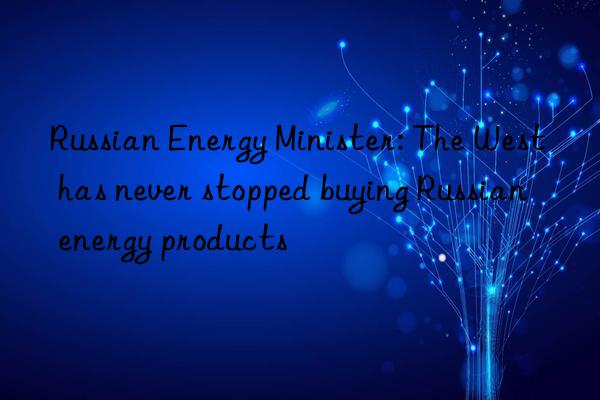
Since the outbreak of the Russia-Ukraine conflict, Western countries have imposed multiple rounds of sanctions on Russia, including imposing a ban on Russian oil in the energy sector and setting price ceilings. But on May 28, in a program on Russian TV One, Russian Energy Minister Nikolai Shulijinov said that the West has never stopped buying Russian energy products, but has turned to "workarounds" for procurement.
Reporter of Russian TV 1: They are still buying Russian gas, but not directly from Russia, the same is true for oil, am I right?
Russian Energy Minister Shuliginov: Yes.
In March this year, Bloomberg reported that some EU countries have been actively buying Russian LNG, with Spain ranking first among the buying countries in early 2023. The largest importer of fossil fuels, followed by Belgium and Bulgaria. Since the outbreak of the Russia-Ukraine conflict, Spain's total LNG imports from Russia have soared by 84%. France is also a major importer of Russian LNG, buying 1.9 million tonnes in 2022, Bloomberg also said. It was followed by Spain with 533,800 tons and Belgium with 310,000 tons.
The European Union has not yet reached a consensus on sanctioning Russian pipeline natural gas
In December 2022, the European Union, the Group of Seven (G7) and their allies imposed a collective ban on Russian seaborne oil exports and imposed a price cap of $60 per barrel on Russian crude. On February 5 this year, the European Union's sanctions against the import of Russian oil products came into effect, and set price caps on Russian gasoline, diesel, kerosene and other oil products.
Although Russia's pipeline natural gas has not yet been restricted, after the "Beixi-1" and "Beixi-2" natural gas pipelines were damaged and unable to operate in September 2022, Russia's natural gas exports to the EU have been greatly reduced. According to a report by the US "Politics Daily", as of mid-May, the EU has not yet reached a consensus on whether to sanction Russia's pipeline natural gas exports.



 微信扫一扫打赏
微信扫一扫打赏
